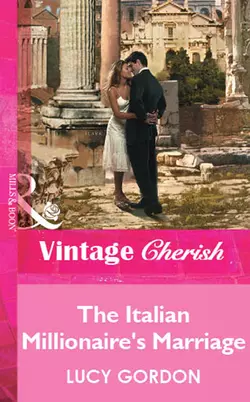The Italian Millionaire′s Marriage

Lucy Gordon
Тип: электронная книга
Жанр: Современные любовные романы
Язык: на английском языке
Стоимость: 152.29 ₽
Статус: В продаже
Издательство: HarperCollins
Дата публикации: 16.04.2024
Отзывы: Пока нет Добавить отзыв
О книге: Rome: a bride by arrangement?Harriet isn′t interested in netting a rich husband–but her little shop is thigh-deep in debt, so she′s tempted when gorgeous Italian millionaire Marco Calvani makes her a proposal. If Harriet returns to Rome with him, Marco will lend her the money to pay off her creditors. If they marry, he′ll write off the loan!Harriet will go to Rome–Marco′s very persuasive, not to mention irresistibly attractive–and at least the bailiffs will be off her back! And she′ll go ahead with the marriage deal, but only if it′s based on love, not convenience….